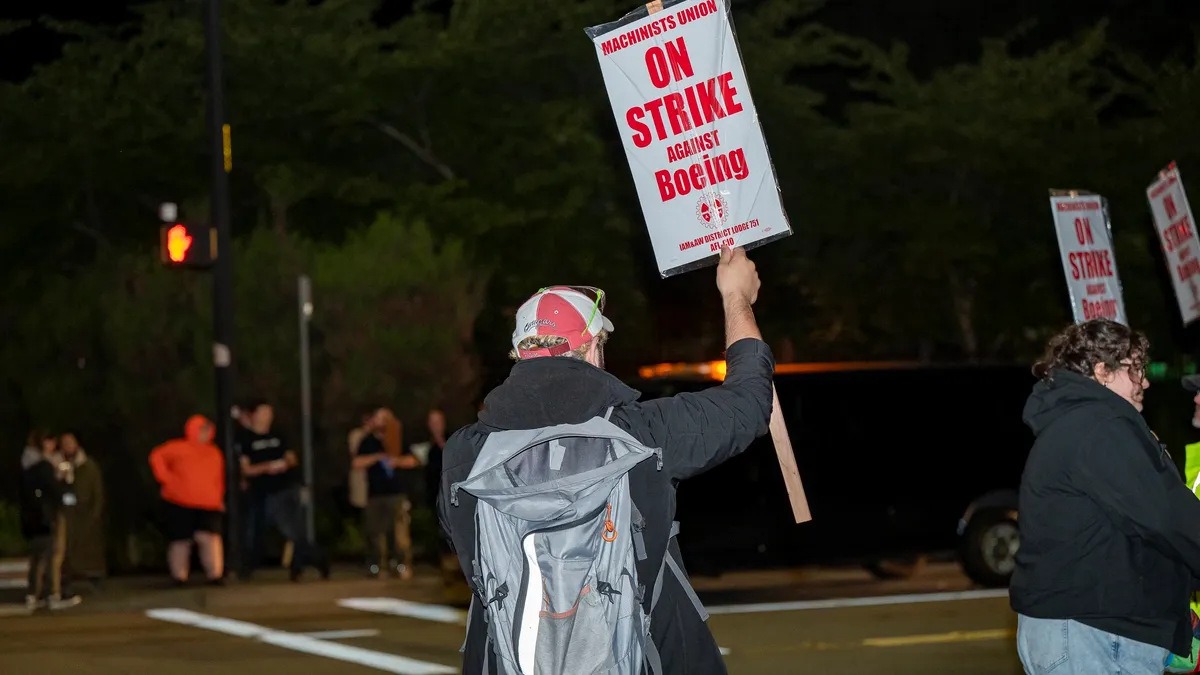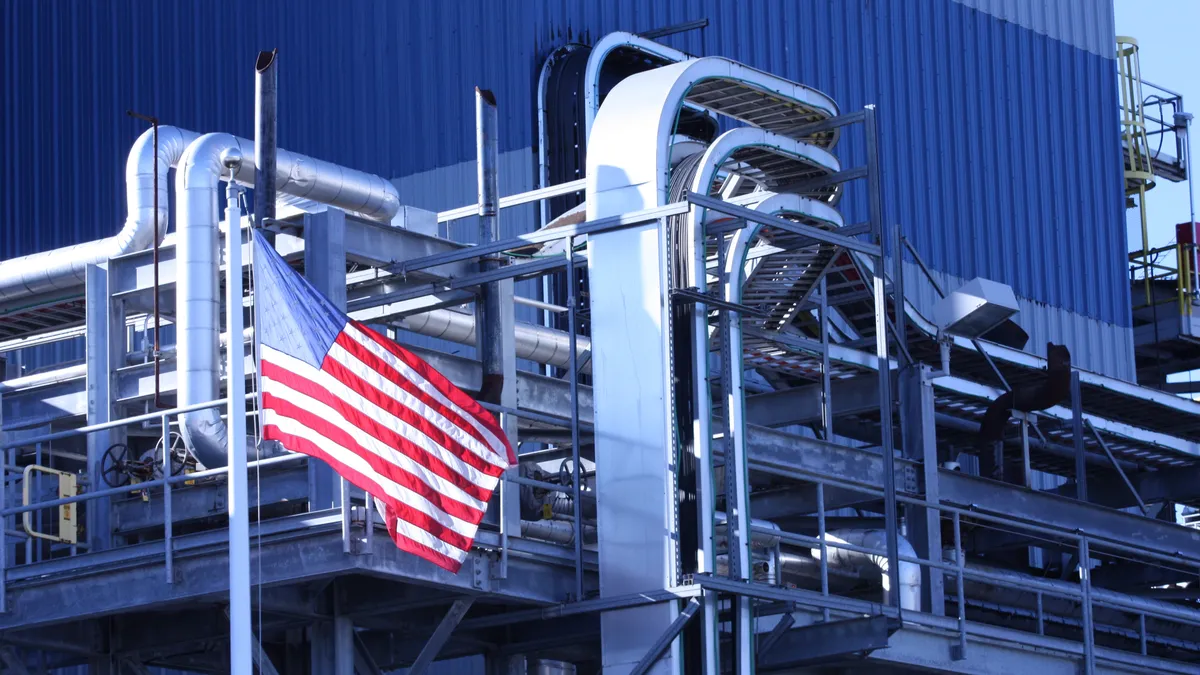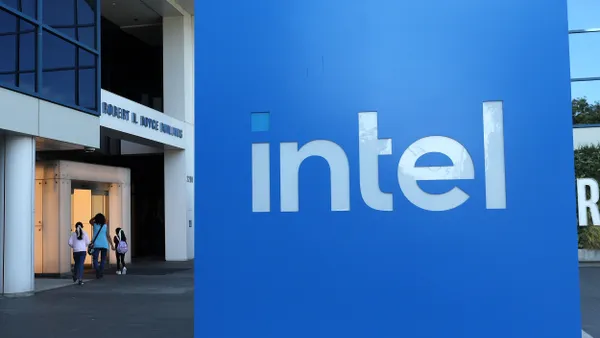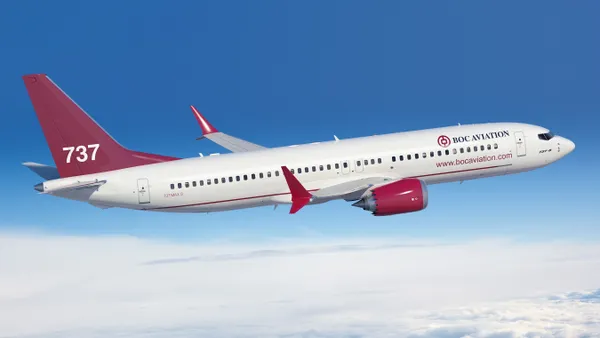Boeing workers went on strike early Friday morning after rejecting the planemaker's contract offer.
The 33,000 members of the International Association of Machinists and Aerospace Workers’ two union groups at Boeing overwhelmingly rejected the offer, with more than 95% of members voting against it and favoring a strike.
The strike halts much of the production at Boeing's Puget Sound, Washington, and Portland, Oregon, factories. The facilities primarily support production for Boeing’s commercial airplanes and defense, space and security programs, including the 737 Max, according to a Boeing Sept. 8 release.
“The message was clear that the tentative agreement we reached with IAM leadership was not acceptable to the members,” Boeing said in a statement Friday morning. “We remain committed to resetting our relationship with our employees and the union, and we are ready to get back to the table to reach a new agreement.”
How much the work stoppage ultimately costs the beleaguered company will depend on how long it lasts.
The last strike at Boeing in 2008 cost the company roughly $100 million a day in deferred revenue, according to a November 2008 New York Times report. The strike 16 years ago lasted 57 days and cost the planemaker approximately $1.5 billion, The Guardian reported.
The members have spoken:
— Washington State Labor Council, AFL-CIO (@WAAFLCIO) September 13, 2024
STRIKE
Solidarity with our @IAM751 kin, Washington’s labor movement will be with you on the line every step. pic.twitter.com/HjCkh5FZ8U
Boeing's contract with District 751 and W24 expired on Thursday, following months of tense negotiations that began in March. The union vote far surpassed the two-thirds majority needed to enact the work stoppage.
The strike could end in as quickly as a week, given Boeing’s “particularly weakened position, having just pushed out the 737-production rate of 42/mo from September 2024 to March 2025,” according to a Sept. 13 Bank of America research note.
No details have been disclosed on when the two parties will return to the negotiation table.
The strike impacts operations at a number of sites across the West Coast, predominately in Washington, which includes the commercial facilities in Everett and Renton. The two factories produce the 737, 767 and 777 aircraft. Other sites include Moses Lake and Portland, Oregon, as well as fabrication facilities within Boeing’s supply chain and a couple of sites in California.
“This is about respect, this is about addressing the past, and this is about fighting for our future,” IAM District 751 President Jon Holden said at a press conference late Thursday night.
Holden criticized Boeing for using unlawful predatory tactics against union members ahead of the vote.
“We had discriminatory conduct, we had coercive questioning, we had unlawful surveillance, and we had unlawful promise of benefit,” Holden said. “So Boeing has to stop breaking the law, has to bargain in good faith, and we will back at the table whenever we can get there to drive forward on the issues that our members say are important.”
Boeing did not immediately respond to a request for comment on Holden’s accusations.
The company's manufacturing sites have been under the spotlight for months, with federal reports revealing a toxic work culture including retaliation for speaking up regarding Boeing’s manufacturing processes and quality.
The strike is another blow to Boeing during a disastrous year. The company already burned through more than $5 billion in the first half of the year, including more than $4 billion to address manufacturing quality issues.












